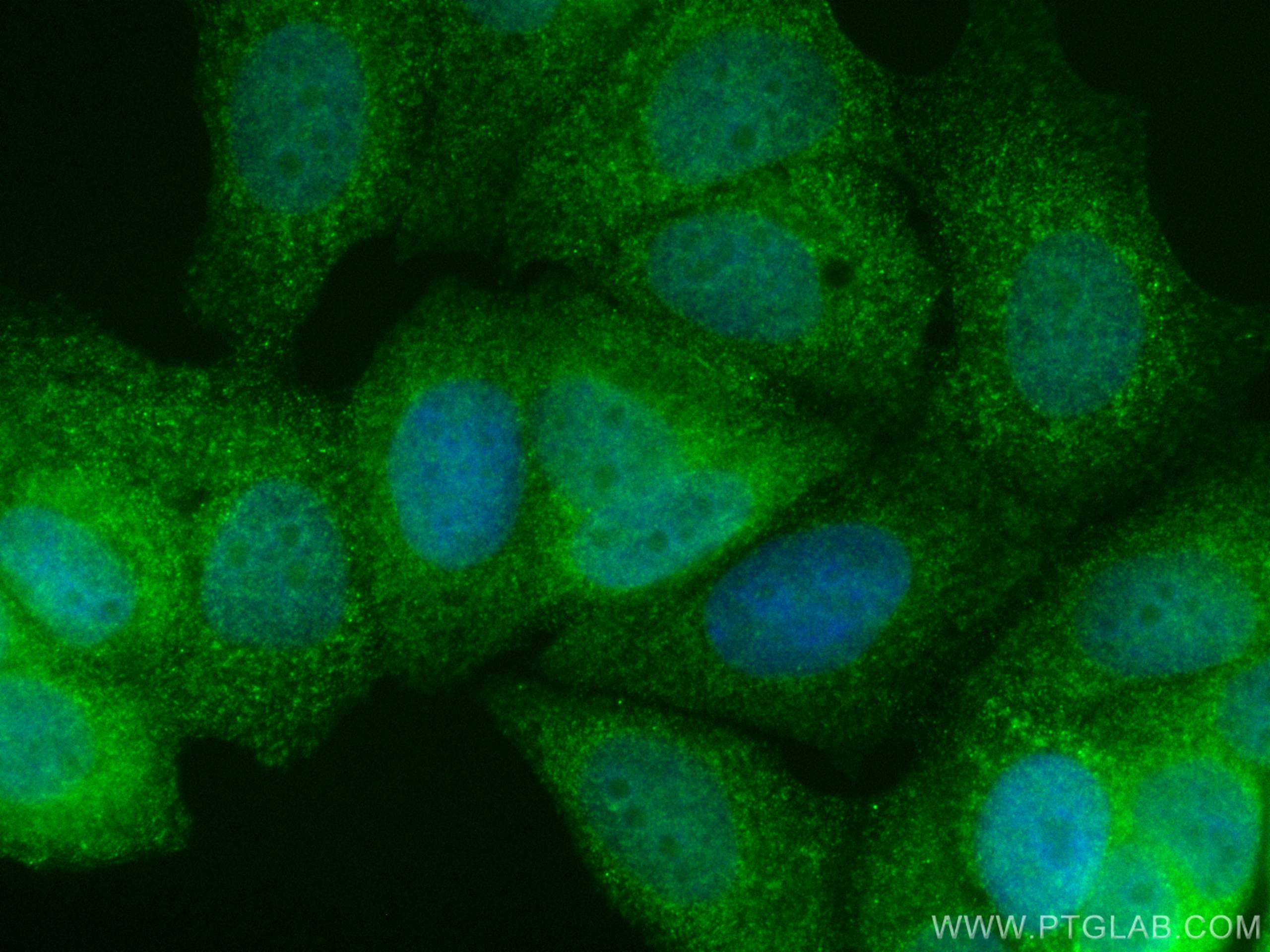Tested Applications
| Positive IF/ICC detected in | MCF-7 cells |
Recommended dilution
| Application | Dilution |
|---|---|
| Immunofluorescence (IF)/ICC | IF/ICC : 1:50-1:500 |
| It is recommended that this reagent should be titrated in each testing system to obtain optimal results. | |
| Sample-dependent, Check data in validation data gallery. | |
Product Information
CL488-27384 targets DVL1 in IF/ICC applications and shows reactivity with human, mouse samples.
| Tested Reactivity | human, mouse |
| Host / Isotype | Rabbit / IgG |
| Class | Polyclonal |
| Type | Antibody |
| Immunogen | DVL1 fusion protein Ag26055 Predict reactive species |
| Full Name | dishevelled, dsh homolog 1 (Drosophila) |
| Calculated Molecular Weight | 75 kDa |
| Observed Molecular Weight | 75 kDa, 73 kDa |
| GenBank Accession Number | BC050454 |
| Gene Symbol | DVL1 |
| Gene ID (NCBI) | 1855 |
| RRID | AB_3672810 |
| Conjugate | CoraLite® Plus 488 Fluorescent Dye |
| Excitation/Emission Maxima Wavelengths | 493 nm / 522 nm |
| Form | Liquid |
| Purification Method | Antigen affinity purification |
| UNIPROT ID | O14640 |
| Storage Buffer | PBS with 50% glycerol, 0.05% Proclin300, 0.5% BSA, pH 7.3. |
| Storage Conditions | Store at -20°C. Avoid exposure to light. Stable for one year after shipment. Aliquoting is unnecessary for -20oC storage. |
Background Information
DVL1 is one of three DVL homologous proteins (DVL1-3) widely expressed in embryonic development and in the adult central nervous system. Dishevelled proteins are a necessary component of the Wnt and planar cell polarity developmental signaling pathways. Overexpression of DVL1 has been linked to prostate and breast cancers through the Wnt signaling pathway.
Protocols
| Product Specific Protocols | |
|---|---|
| IF protocol for CL Plus 488 DVL1 antibody CL488-27384 | Download protocol |
| Standard Protocols | |
|---|---|
| Click here to view our Standard Protocols |



